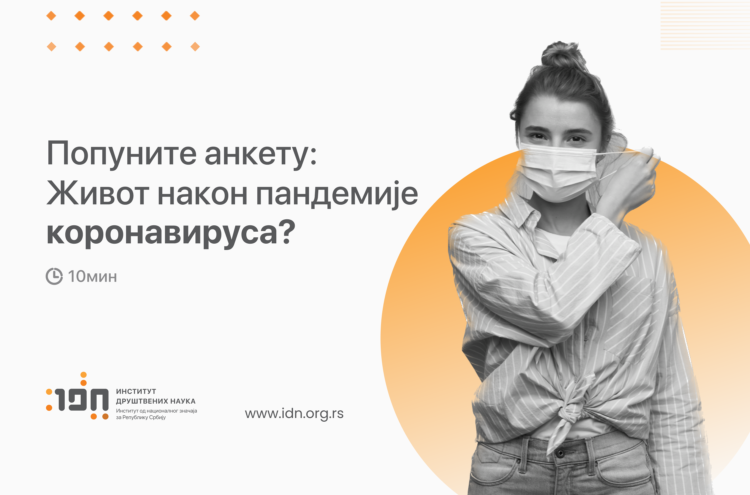Human behaviour is a key factor in shaping the course of pandemic, directly affecting the likelihood of transmission and infection. For that reason, understanding how the members of different socio-demographic groups perceive the risk, and consequently adopt preventive behaviours, is crucial to increase situational awareness and inform interventions.
Based on WHO Behavioural Insights Study methodology, the Institute of Social Sciences will develop a three-wave survey on COVID-19 related attitudes and behaviour in Serbia in the general population.
The main aim is to monitor variables that are critical for population behaviour to control transmission of the coronavirus, including risk perceptions, knowledge, confidence in institutions, affect, worry, trust in/use of information sources, vaccination intentions, etc.
Approximately 1500 respondents per wave will be interviewed online and via telephone interviews.
Link to the survey: https://tinyurl.com/yc595zvs

